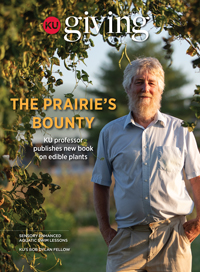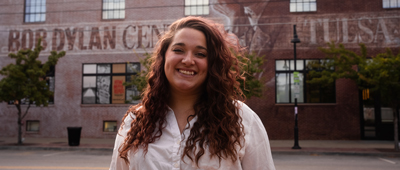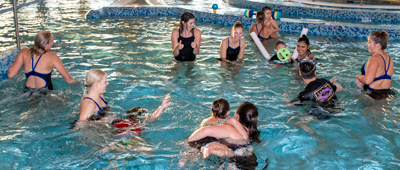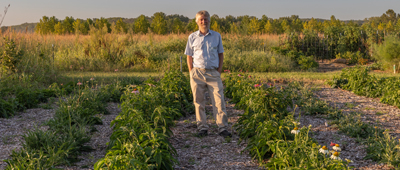KU Giving Magazine
Students are Inventing the Future
Valerie Gieler
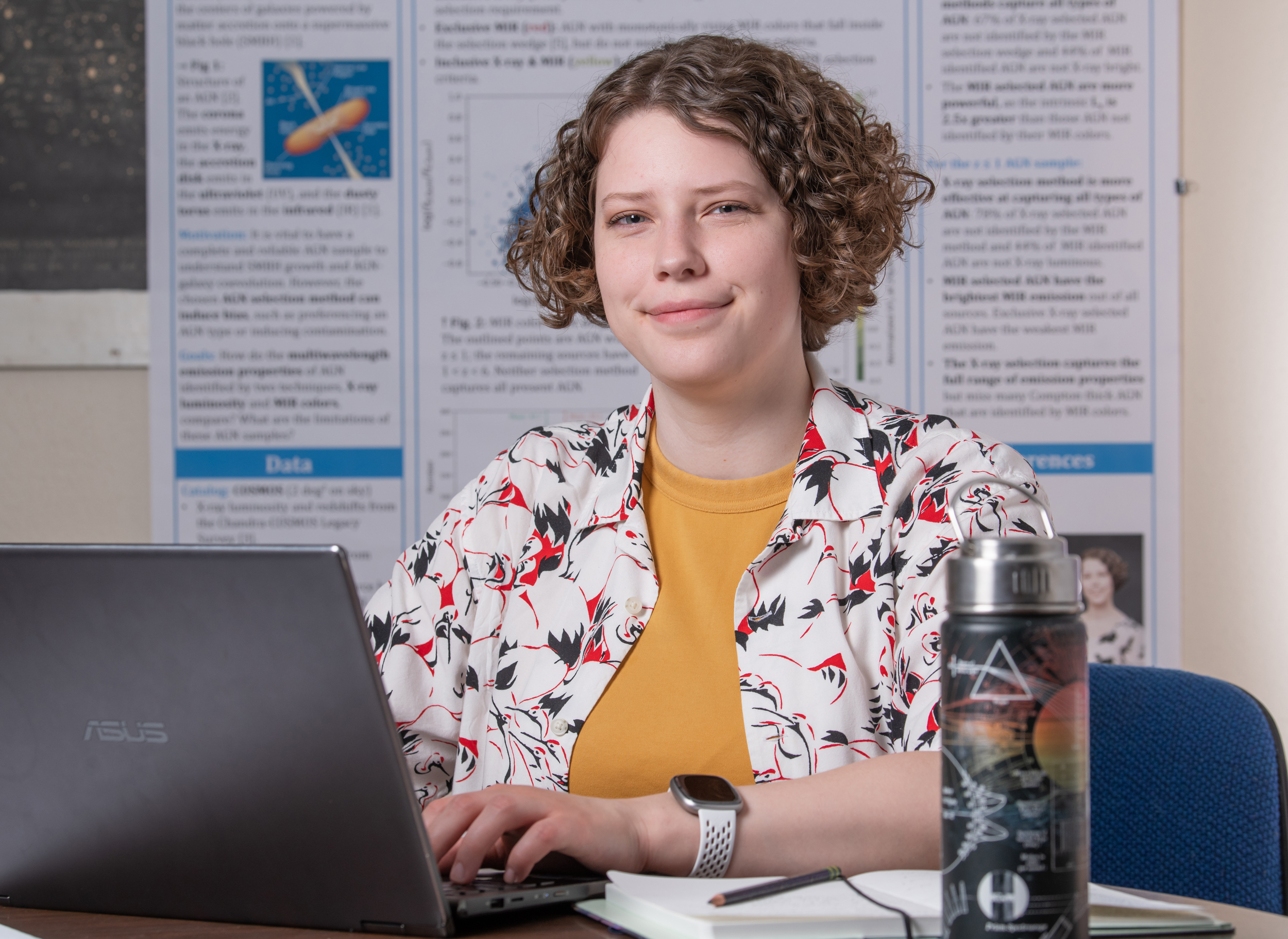
STUDYING SPACE: Thresa Kelly’s research projects involving the James Webb Space Telescope and the University of Hawaii Institute for Astronomy fueled her passion for a research-focused career studying supermassive black holes at the centers of galaxies.
Undergraduate research is central to the KU experience
It is a typical day at the University of Kansas. Properties of supermassive black holes are being compared using data from the James Webb Space Telescope. An exhibit about the history of Clinton Lake is being curated at the Spencer Research Library. Societal concerns are being examined through the lens of a camera. The damage of a laboratory truss bridge is being investigated. A drug is being synthesized to regenerate bones in patients who have undergone radiation therapy. None of these activities are surprising for a major research and teaching university such as KU — until you learn that all this work is being conducted by undergraduate students.
Where students claim their curiosity
As an Association of American Universities (AAU) member institution, KU has always strongly believed in undergraduate research. This mission was formalized in 2012 when the Center for Undergraduate Research (CUR) was established as part of the Bold Aspirations strategic plan. The university offers undergraduate research opportunities in every department, giving students the chance to participate in research no matter their major. CUR supports traditional one-on-one research mentorship and also works with faculty to develop projects in their classes to allow even more students to participate in undergraduate research.
“It is well known that being involved in research as an undergraduate is a high-impact practice that allows students to thrive, feel like they belong in their major and their university and succeed in their classes, as they see the real-world applicability of what they are learning,” said Alison Olcott, director of CUR.
Triannual Undergraduate Research Symposiums provide opportunities for students to present on topics of their choice. Students can also apply for Undergraduate Research Awards (UGRA), which provide $1,000 to support original research or creative projects, and Undergraduate Travel Awards up to $500 to help fund expenses to present research at a professional conference. CUR has resources and consultations available to help students find research experiences and successfully complete them.
“Undergraduate research hones students’ critical thinking, analytical skills, organizational, time management and communication skills,” said Dawn Tallchief, assistant director for student programs at CUR. “It also helps define a student’s academic and career interests.”
Galactic inspiration shifts career path
The opportunities to explore subject areas and careers through research has helped KU senior Thresa Kelly chart her future. While she always had an interest in astronomy, Kelly originally thought she would work as an electrical engineer on satellites.
“After coming to KU, I found that I don’t like electrical engineering as much as I thought, but I do really enjoy computer science,” Kelly said. “And then I started working with Dr. Allison Kirkpatrick on an astronomy research project and took more astronomy classes.”
The research project uses images and data from the James Webb Space Telescope to identify active galactic nuclei (AGN) or supermassive black holes. Kelly’s computer science background helped her organize the data collected, build charts and interpret the results.
The AGN research at KU led to Kelly being accepted into a Research Experience for Undergraduates program at the University of Hawaii Institute for Astronomy in summer 2022. She lived on campus and worked at the institute for 10 weeks. “The Institute for Astronomy has access to some of the world’s best telescopes located up on Mauna Kea, and we actually got to visit all the telescopes,” Kelly said. “That was one of the highlights of the experience.”
Kelly’s research at the University of Hawaii focused on comparing multiwavelength properties of identified AGN. It resulted in oral and poster research presentations at professional conferences, and she is currently writing a first-author paper submission to an academic journal.
These experiences helped Kelly refine her engineering physics degree to include a concentration in digital electronic systems and minor in astronomy. She aspires to earn a doctorate in astrophysics and become a professional scientist. “The most important thing with getting involved in research is having an interest to learn more,” she said.
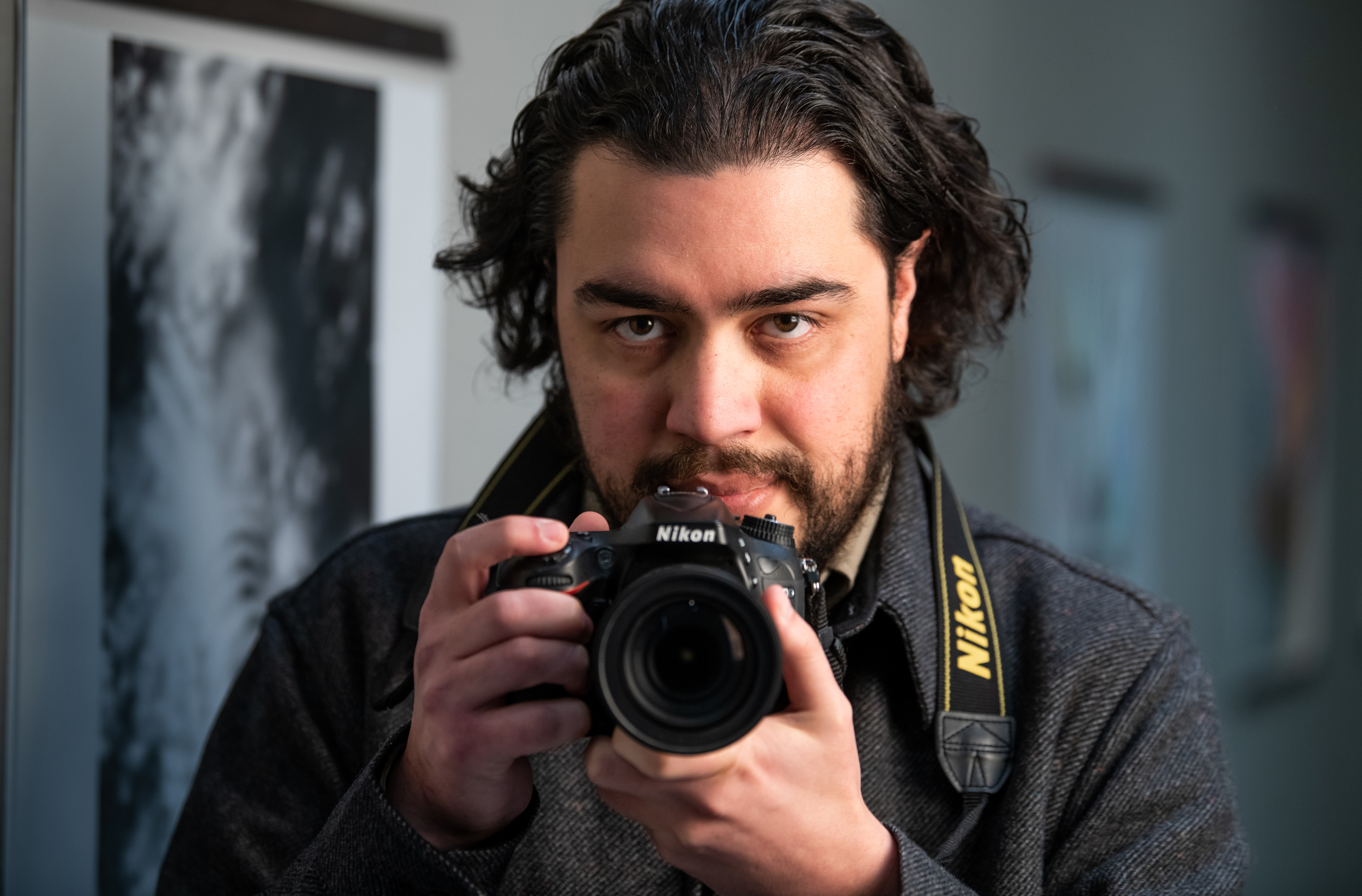
SOCIAL EXPLORATION: Anxiety, uncertainty, loneliness, polarization and divisiveness are some of the topics Tomas Andreas investigates through his photographic art. His project, Tomorrow Never Knows, began as a reflection of the pandemic, but he feels it will continue to evolve.
The art of expression
KU photography student Tomas Andreas believes art conveys the emotions of a point in time beyond the facts, and this became the driving idea behind his artistic research project, Tomorrow Never Knows. Funded by a UGRA, the project explores the anxiety, uncertainty, loneliness and polarization many people experienced during the height of the COVID-19 pandemic and how media, world leaders and social media played a role.
“Fine art has an important place in society, and having an artifact of a period serves society as a whole,” Andreas said. “The pandemic was an unprecedented time, and I wanted to capture it.”
Most of Andreas’ work is in black and white. He developed a technique where he uses motion and in-camera blur for his photographs. For Tomorrow Never Knows, he decided to focus on his experiences and those of his girlfriend and fellow KU student, Chloe Grimm. One representative image in the collection is of a hand reaching out for support. Titled Off Balance, the photo captures the anxieties Andreas was experiencing.
“I have a heart condition and sometimes struggle with coordination. I needed to isolate at times, and it was scary,” he said. “There are also contradictory elements and moments of joy, such as the image of Chloe dancing.”
Although the research award portion of Andreas’ project is complete, he says the work will remain relevant. “I think society is now transitioning into other periods of uncertainty and anxiety with the war in Ukraine and inflation. It’s all connected and will continue to evolve.”
After Andreas graduates this May, he has not decided yet if he will pursue graduate school. For certain, Andreas will have a camera in hand and focus on his photography studio and fine art gallery shows.
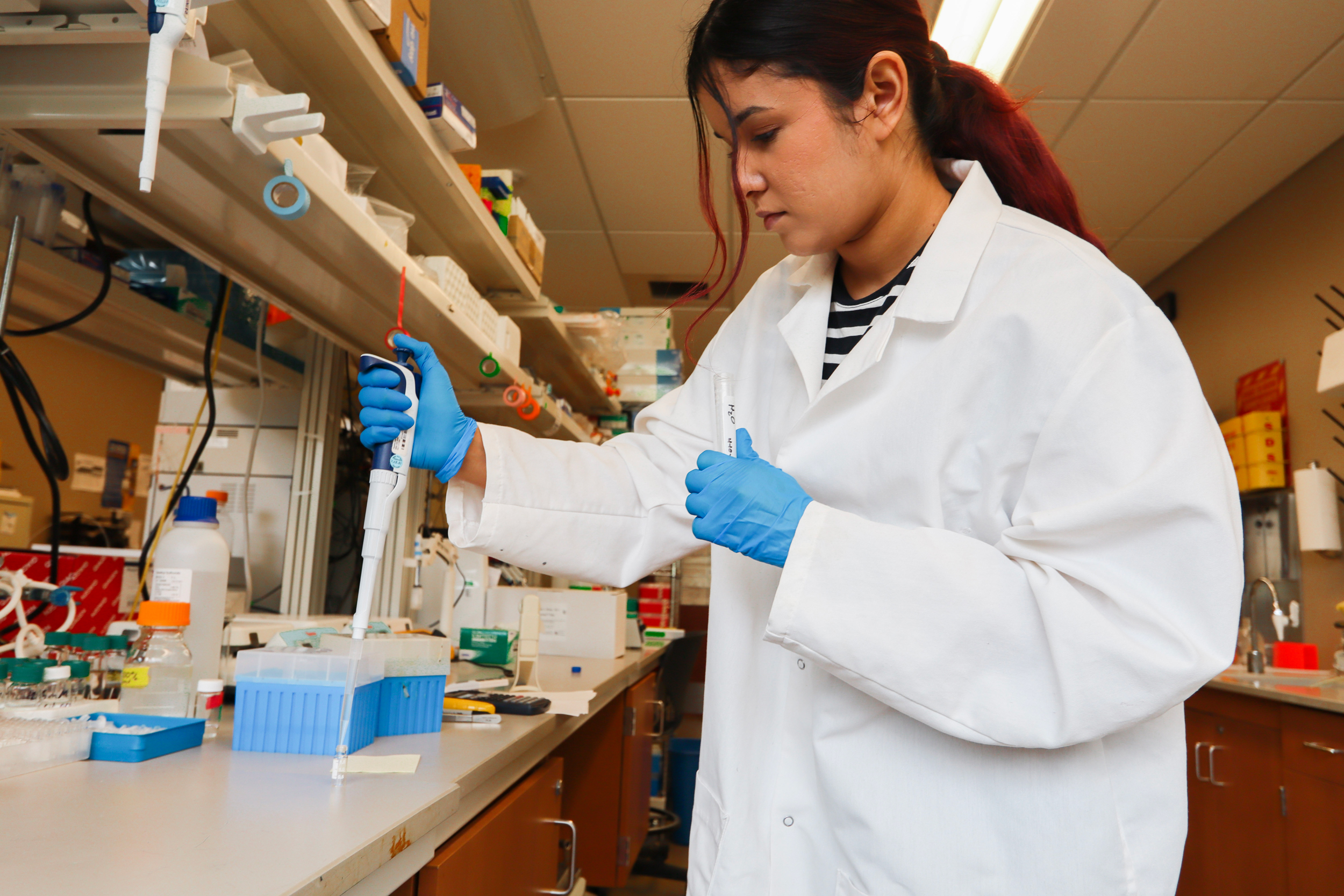
A petri dish of possibilities
KU junior Navya Singh has always been fascinated by how things work but was not sure what she wanted to do in college. She was intrigued by research and wanted to go to a big school that still felt like a close, small-knit community since she would be studying far from her home in Chandigarh, India. KU’s strong research focus and celebrated University Honors Program made it a dream school for her.
To find her passion, Singh decided to try out everything she likes. “I took random classes, joined various clubs and reached out to a professor to work in their lab, just because those things sounded cool,” Singh said. “My only goal was to take advantage of as many opportunities as I could.”
One of those opportunities included a radiology oncology research experience at KU Medical Center her freshman year. “My summer research fellowship showed me how much I love interacting with patients,” she said. “This has made me interested in pursuing the M.D.-Ph.D. track in medical school, so I can do research and become a physician.”
Singh has been working in the Laird Forrest Lab for the past year through a Kansas Idea Network of Biomedical Research Excellence (K-INBRE) fellowship. Her project is about synthesizing a drug with the potential to regenerate bones in patients who have undergone radiation therapy. “I enjoy reading about the theory behind it as much as I enjoy making the drug in the lab,” she said.
She works 20 hours a week during the school year and 40 hours a week during breaks to make ends meet at college. “My scholarships and awards have been so impactful to my journey,” Singh said. “They also reaffirm my belief in the work I do in the research and KU community, as they show my work is being recognized.”
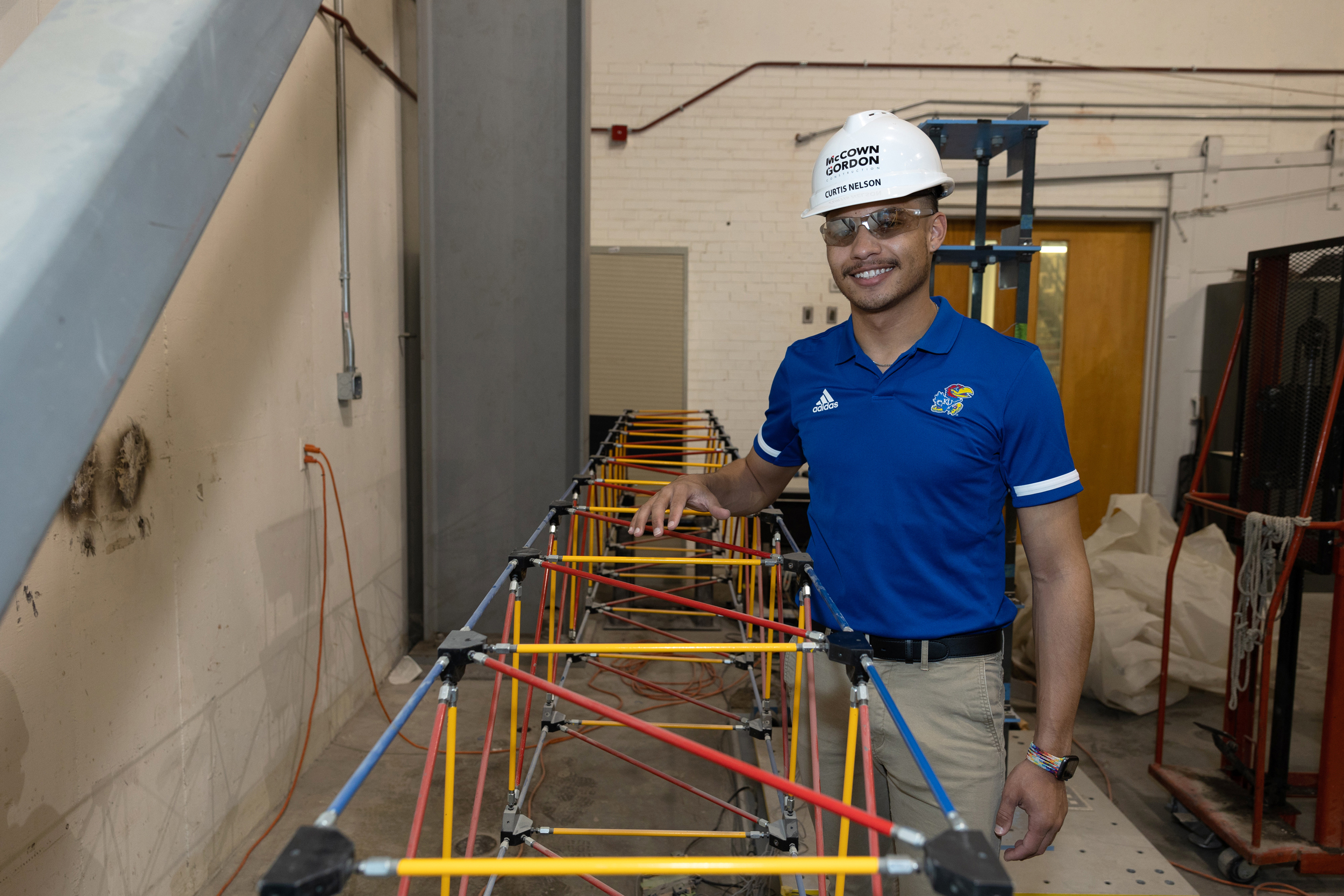
BUILDING A NETWORK: Developing connections with faculty, graduate students and peers has been an important part of Curtis Nelson’s research involvement at KU. These relationships have been vital in helping him obtain scholarships and internships.
Mentors bridge student’s experience
While in third grade, KU senior Curtis Nelson wrote a book titled Me, Myself and I for a class project. In it, Nelson said his plan was to attend the University of Kansas and study architectural engineering. The rest, as they say, is history — or engineering, rather. Nelson has always loved math and physics and his childhood mentor is a KU alumnus in the field. “I predicted the future for myself, but I also made the choice to pursue this passion,” he said.
Nelson became involved with research freshman year while looking for a campus job. This experience was outside his major, but he appreciated the practical, hands-on knowledge. His current engineering research project is a forensic study of a laboratory model truss bridge damaged during a move. All the bridge’s bars have to be parallel or perpendicular to one another at a 45-degree angle to be useful for testing. Nelson is assessing the damage and creating a repair plan.
The educational journey has not always been easy for Nelson as he has been primarily supporting himself since age 16. Obtaining a degree would not be possible without his research awards, research assistantships and scholarships. “This support has made it so I can really invest in my education and take care of myself,” he said.
Nelson has an engineering internship this summer and is returning to KU for a master’s in civil engineering in the fall. His goal is to earn his professional license, obtain a doctorate in structural engineering and become a professor. Inspirational mentors including Elaina Sutley, associate dean for DEIB, and Jian Li, associate professor of Civil, Environmental & Architectural Engineering, have made a difference during Nelson’s journey.
“College is difficult, and especially so for underrepresented students,” Nelson said. “I have a passion for helping the ‘me’ of the future and leveraging my knowledge, skills and resources to assist students.”
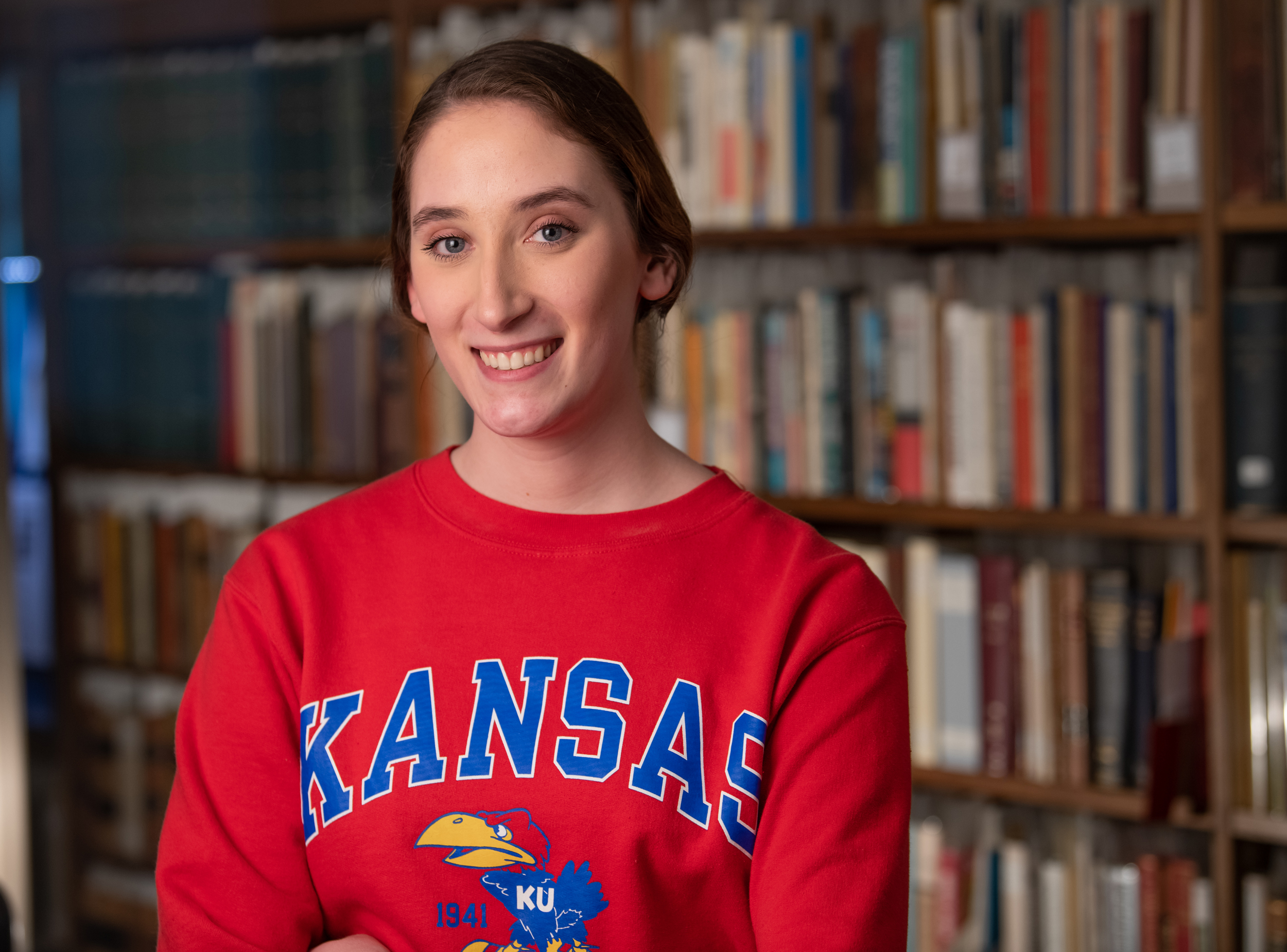
Discovering untold stories
KU history major Claire Cox has a passion for bringing hidden stories to light. “Telling a story no one has heard might change someone’s perspective of the world,” she said.
As part of an internship and with support of a UGRA, Cox is currently working to curate an exhibit at the Wakarusa River Valley Heritage Museum about the Native American history submerged beneath Clinton Lake. She is also putting together a small exhibit for the Spencer Research Library, where she is a student employee, about Clinton Lake and the residents who were displaced. “Museums are so valuable because they are open to the public and anyone can walk in and learn something new,” Cox said.
The most important thing she has learned working within museum spaces? How you present information and who gets to tell the story are more important than the information itself. “If you are going to tell a story, you should include the communities you are speaking about in the process,” she said.
This experience is directly related to Cox’s future goal of becoming a museum curator and a professor and possibly writing a book. She will graduate with a bachelor’s in history in May and earn her master’s in history and bachelor’s in global and international studies in 2024. She also has plans to pursue a doctorate in history. “I hope to leave behind a published book or journal articles that contributed to the field of history,” Cox said. “That’s what intrigues me so much about research.”
Higher education means a lot to Cox, and she typically works more than 30 hours a week during the semester to make her degree programs possible. “The financial cost of education is a big factor,” she said. “Through academic scholarships and the Undergraduate Research Award, I’m able to fund my college experience and the research projects I find very meaningful.”
Supporting research
Philanthropy allows CUR to directly support undergraduate students as they explore the research opportunities available to them. The center’s donor-funded awards include the K. Barbara Schowen Research Mentor Award honoring the contributions of faculty who mentor undergraduate researchers, and the Courtwright Award for Undergraduate Research Excellence, awarded to a top undergraduate researcher who has received a UGRA. These types of awards can make a significant difference to a student. “A group of distinguished professors on campus recently donated money to support emerging scholars and provide mentorship training to graduate students, and all gifts on One Day. One KU. have been used directly to support students,” Olcott said. “We are very grateful to our donors.”
The center’s ongoing mission is to support undergraduate research in all disciplines and at all levels. “We want students to understand that undergraduate research is for them, whether they are majoring in the humanities, the arts, the social sciences or the sciences, and whether they are a first-year student or a student in their last year,” Olcott said. “Our goal is that by the time students graduate, they understand what authentic research and creative pursuits look like in their field.”
Help Fuel Discovery
To support student researchers and the CUR, contact Whitney Escalante by email or 785-832-7463.
